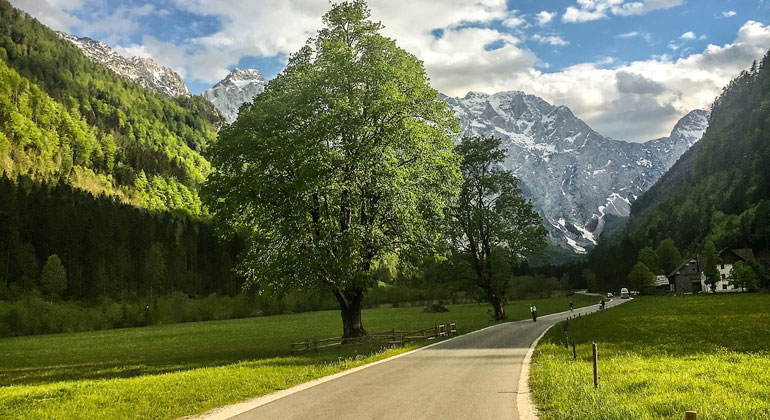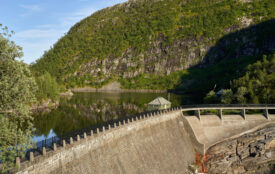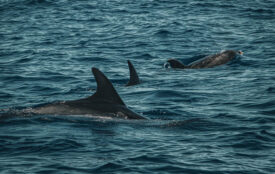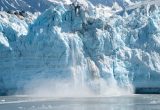Uncovering Nature’s Role in Climate Action
We can’t halt climate change if we refuse to rapidly decarbonise the global economy and simply allow the crisis in nature to continue unabated.
- Nature has absorbed 54% of human-related carbon dioxide emissions over the past 10 years. This has slowed global warming.
- Global warming of 1.1°C is already causing dangerous and widespread disruption in nature, with ecosystems being pushed beyond their limits.
- We are losing nature as our ally. As polluting human activities escalate, nature’s capacity to absorb carbon and help us adapt and build resilience is weakening.
- Government at COP27 must recognise the important role nature can play in achieving the goals of the Paris Agreement.
The latest science confirms that nature acts as our secret ally in the fight against climate change, slowing global warming and protecting humanity from much more severe impacts of climate change, according to a new WWF report.
The report highlights the power of natural ecosystems to both reduce emissions and help communities adapt and build resilience in a warming world. Our Climate’s Secret Ally: Uncovering the story of nature in the IPCC Sixth Assessment Report draws upon the Intergovernmental Panel on Climate Change (IPCC)’s work to highlight the interlinked emergencies of human-induced climate change and biodiversity loss, and makes the case for better integrating nature into the global response to the climate crisis.
“Nature is a climate ally, but natural systems are being pushed beyond their limits by the unrelenting pressure from climate change, pollution, over-exploitation and ecosystem conversion,” said WWF Deputy Global Lead for Climate and Energy, Dr Stephen Cornelius. “We can’t halt climate change if we refuse to rapidly decarbonise the global economy and simply allow the crisis in nature to continue unabated. Governments at COP27 should integrate the links between climate, people and nature, as well as accelerate progress on mitigation and adaptation ambition, and loss and damage. To limit warming to 1.5°C, adapt to climate change and save lives and livelihoods, we must safeguard and restore nature.”
“Our capacity to restore healthy ecosystems and a healthy planet is constrained by global warming,” said Professor Hans-Otto Pörtner, IPCC Co-Chair, Working Group II. “Benefiting from the many services ecosystems provide depends on successfully reducing emissions and keeping global warming to 1.5°C or below. The evidence is stronger than ever before that the world’s current climate and biodiversity crises depend on each other and can only be solved together.”
The report highlights that some 31% of man-made CO2 emissions over the past 10 years were absorbed by terrestrial ecosystems (including plants, animals and soils), while an additional 23% was taken up by the ocean – at great cost for many marine ecosystems, as its waters become increasingly acidic.
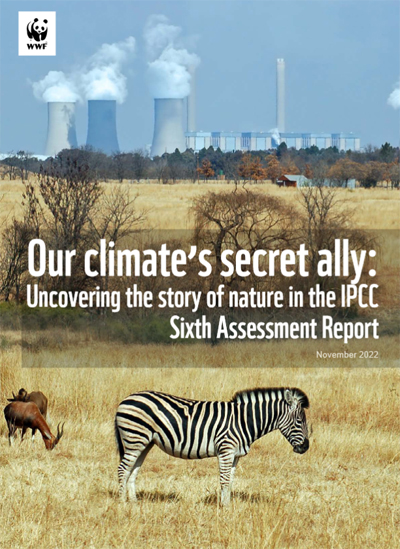
In addition to slowing global warming, healthy ecosystems increase resilience and help keep communities safe from the impacts. For example, coral reefs, wetlands and mangroves provide some protection from storm surges, and forests can soak up excess rainwater, preventing run-offs, landslides and damage from flooding. But extreme weather events such as drought, wildfires and marine heatwaves, can destroy entire ecosystems and cause mass mortalities.
At COP27, WWF urges leaders to recognise nature-based solutions within the outcome of COP27, embed them in climate action and create momentum ahead of the December COP15 biodiversity summit in Canada – humanity’s unmissable opportunity to reset its broken relationship with nature.
- The report is available here and infographics are available on request.
